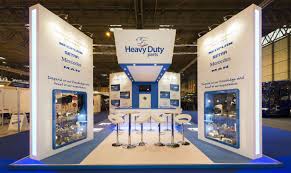The Perils of Greenwashing in Procurement: A Call for Integrity
As sustainability takes centre stage in procurement practices, the pressure to meet green targets is mounting. Nowhere is this more evident than in London, where housing sector procurement professionals are under increasing scrutiny. While sustainability is vital, the rush to align with carbon-zero mandates has inadvertently fueled a wave of greenwashing, where suppliers exaggerate or fabricate their environmental credentials. This issue is compounded by career-driven procurement professionals prioritising short-term goals over long-term sustainability, often underpinned by questionable industry training. Regulators are poised to crack down, and the housing sector must act swiftly to mitigate the risks.
Understanding Greenwashing in Procurement
Greenwashing occurs when companies misrepresent their environmental practices to appear more sustainable. In procurement, this may manifest as false claims about carbon neutrality or the use of eco-friendly materials without proof. For example, suppliers might outsource to third parties with lax sustainability standards, bypassing carbon-zero goals while appearing compliant. The housing sector, driven by ambitious green targets, is particularly vulnerable to such deceptive practices.
A Warning from the Fashion Industry
Recent developments highlight the regulatory risks of greenwashing. In March 2024, the UK’s Competition and Markets Authority (CMA) secured commitments from major fashion retailers, including ASOS and Boohoo, to improve the accuracy of their environmental claims. This followed an investigation that exposed vague and misleading sustainability claims. Procurement teams should take heed: housing projects that fall prey to similar tactics risk reputational damage and regulatory penalties.
The Housing Sector in the Spotlight
London’s housing sector faces heightened pressure to deliver sustainable solutions. Procurement professionals are tasked with selecting suppliers that align with stringent carbon-zero goals. However, the desire to meet targets quickly can lead to inadequate vetting of suppliers’ environmental claims. Construction firms, for example, might exaggerate their adherence to eco-friendly practices or rely on questionable carbon offset schemes. These scenarios jeopardise not only project outcomes but also public trust in the housing sector’s commitment to genuine sustainability.
Risks for Career-Focused Procurement Teams
- Career-driven procurement professionals aiming to hit ambitious targets may inadvertently overlook due diligence.
Procurement professionals practices, when grounded in robust frameworks and ethical guidelines, are essential to mitigating risks such as insufficient scrutiny of suppliers. Insufficient scrutiny of suppliers can lead to contracts based on false environmental claims, exposing organisations to:
Reputational Harm: Association with greenwashing damages trust and credibility.Legal and Financial Fallout: Disputes over contract breaches and retendering costs.Operational Setbacks: Disruptions when suppliers fail to meet genuine green standards.
Moreover, the training procurement professionals receive often emphasises compliance rather than critical assessment, leaving gaps in their ability to discern greenwashing tactics.
Tackling Greenwashing in Procurement
Procurement teams can combat greenwashing with proactive measures:
- Enhanced Due Diligence: Verify environmental claims through independent certifications, site inspections, and rigorous supplier audits.
- Defined Criteria: Set explicit sustainability benchmarks in tenders and demand verifiable proof.
- Continuous Oversight: Monitor suppliers throughout the contract lifecycle to ensure adherence to green commitments.
- Robust Training: Equip teams with the tools to identify and challenge greenwashing practices effectively.
Conclusion
Greenwashing poses a significant threat to the integrity of procurement practices, particularly in London’s housing sector. To protect their organisations and the public, procurement professionals must go beyond surface-level compliance. Rigorous due diligence, clear sustainability standards, and ongoing supplier monitoring are critical. By addressing greenwashing head-on, procurement teams can safeguard their reputations, uphold genuine environmental commitments, and ensure that sustainability targets are achieved with integrity. In a world increasingly driven by accountability, there’s no room for shortcuts in sustainability.





